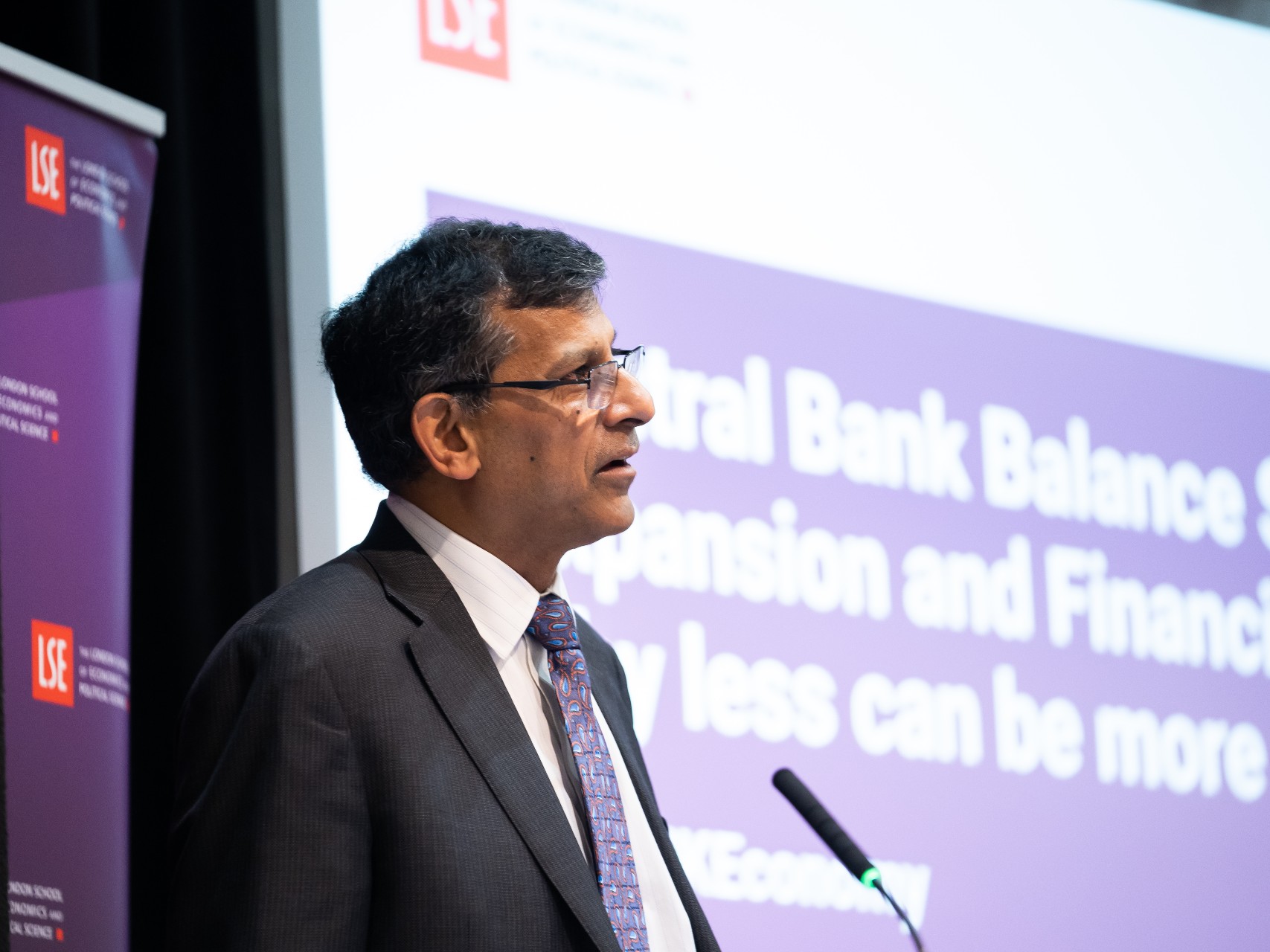 Raghuram Rajan gives a speech at LSE
Raghuram Rajan gives a speech at LSE
Raghuram Rajan, former Governor of India’s Central Bank (RBI), visited LSE last week to receive an honorary doctorate and give a speech as part of the PGIM Lecture Series in Honour of Charles Goodhart.
Professor Rajan was presented with the LSE honorary doctorate by Professor Susana Mourato, Vice President and Pro-Vice Chancellor (Research) at LSE in recognition of his academic contributions, public service and achievements. Professor Lord Nicholas Stern, who chaired the subsequent lecture, referred to Professor Rajan as a “scholar of extraordinary distinction.”
Professor Rajan began the speech with a description of ‘Goodhart’s Law’, named for Professor Goodhart, as a starting point to discuss the implications of policy once it is implemented in the real world.
Setting the background of low inflation following the 2007-8 financial crisis, Professor Rajan described Central Banks’ subsequent unconventional monetary policy choices. The lecture focussed on one of these – Quantitative Easing (QE), or the expansion of Central Banks’ balance sheets to buy assets from the market. Professor Rajan examined whether “this form of monetary policy had unintended consequences [. . .] and what happens when that policy is withdrawn.”.
He went on to explore the lecture’s primary questions: “are Central Bank balance sheet expansions and financial fragility related? Is this cause and effect?”. One key insight from the talk was on the role of commercial banks in this systemic fragility. He said,“…the commercial banking system reacts to the central bank balance sheet expansion by eating up the liquidity the central bank provides, leaving, at some point, a fairly stretched system when the central bank withdraws that liquidity”. Today, with sharply rising interest rates, this problem may be exacerbated.
Following the lecture, Professor Lord Stern chaired a Q&A session which saw questions from the audience on the UK economy, the trajectory of interest rates, international banking regulation, digital currencies, and moral hazard, amongst others.
Responding to a final question on what qualities make for a good Central Banker, Professor Rajan quipped: “we should look wise, and from all our collective experiences, we should probably not talk too much”.
For a full recording of the event, please visit LSE's YouTube Channel.
For a podcast of the event, please visit LSE Player.